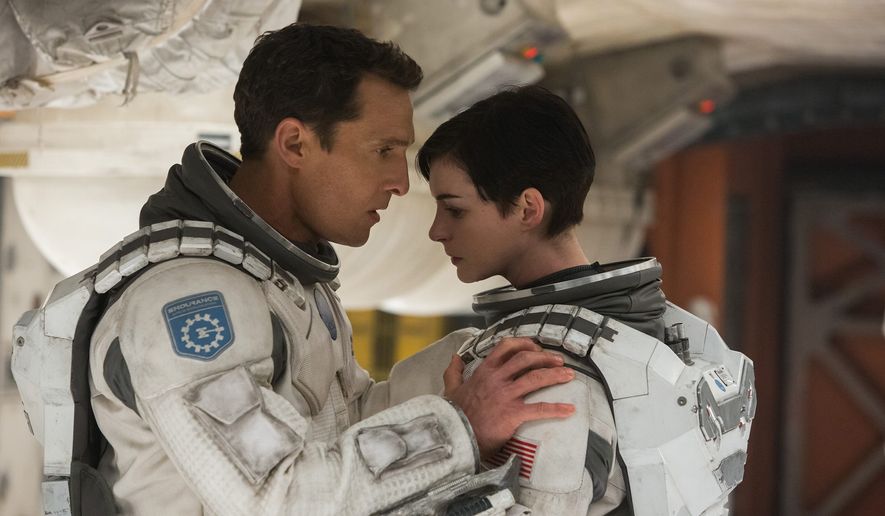How to describe “Interstellar?”
Is it a chilly hard sci-fi adventure in the tradition of “2001: A Space Odyssey?” A metaphysical space opera that frequently embraces go-for-broke sentimentality? A technically proficient, crowd-pleasing blockbuster in the tradition of James Cameron and Steven Spielberg?
The best answer to all of the above is yes.
But mostly “Interstellar” is a Christopher Nolan movie. Like “Memento,” “The Prestige” and “Inception,” it’s a complex puzzle-box narrative about the nature of time and identity with a grand scope, sweeping visuals, and lots and lots of heady dialogue. All of the tics and tendencies that made Mr. Nolan’s previous films thrilling and awe-inspiring are present and magnified, as are those that were frustrating.
It’s a bigger, bolder and more captivating movie than anything Mr. Nolan has made before, and also a more flawed one.
Mr. Nolan’s Batman trilogy imagined the superhero as a lone crusader out to save the crumbling city of Gotham. “Interstellar” takes that basic idea and expands it to a planetary scale: It’s not a city that’s dying, but the entire Earth.
In the near future, dust storms have ravaged the planet, and a blight is slowly strangling the ability to grow food. Invention and innovation are discouraged as frivolous, and schools teach the moon landing as a hoax.
It’s a sci-fi riff on economic malaise and great stagnation — with the power of human will and ingenuity offering the only possible salvation.
The movie’s individualistic streak comes through in the character of Cooper (Matthew McConaughey), an ex-pilot with two children, Murphy and Tom. Cooper is now a farmer, but he isn’t ready to accept permanent decline. So when the opportunity unexpectedly presents itself to pilot a secret NASA mission through a mysterious wormhole in search of a new world to be humanity’s home, he takes it, leaving his children behind.
Cooper’s crew includes two quirky, boxy military robots, as well as a small team of scientists, but only Anne Hathaway’s Amelia Brand is given more than cursory development. Her father (Michael Caine, in a role devoted mostly to exposition) is the mission’s visionary director, left at home while others explore the stars.
The journey, first to Saturn and then to another system dominated by a massive black hole, affords Mr. Nolan the opportunity for a series of stunning space-based visuals. He’s particularly adept at capturing the scenic scale — the vast blackness of space and the imposing presence of planetary phenomena — as well as the skull-rattling speed and friction of movement in and out of the atmosphere.
The movie’s science doubles as a launch pad for sentiment. Because the journey takes Cooper and his shipmates past a black hole, the intricacies of relativity mean that decades pass back on Earth even as they age just a few years. Cooper’s kids grow up to be adults (played by Jessica Chastain and Casey Affleck) bitter about their father’s absence, and the elder Brand ages to his deathbed.
The passage of time and the connection between parents and children provide the movie’s emotional core. That Mr. McConaughey marvels at the wonders of space the same way he marvels at the faces of his own children helps sell the connection, but the unabashed sentimentality sometimes blends awkwardly with the Mr. Nolan’s otherwise cool scientific rationalism.
The story, which Mr. Nolan wrote with his brother Jonathan, is based on the work of theoretical physicist Kip Thorne, and the devotion to semiscientific explanation often means that the script is burdened with expository gobbledygook.
The best moments simply bask in the vast unknowable grandness of space. This movie has plenty of gravity and spectacle without trying to explain it.
TITLE: “Interstellar”
CREDITS: Directed by Christopher Nolan; screenplay by Christopher and Jonathan Nolan
RATING: PG-13 for violence, language
RUNNING TIME: 179 minutes
MAXIMUM RATING: FOUR STARS




Please read our comment policy before commenting.